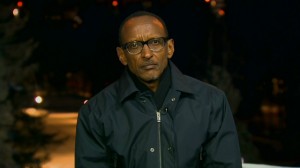
IN SUMMARY
If, in future, any of Karegeya’s family members dies (God forbid), will the Uganda government also first consult Rwanda on whether they should or not be buried in Uganda?
The death of former Rwandan spymaster Patrick Karegeya and the subsequent bilateral conspiracy to stop his body from being buried at his home has exposed several issues about Uganda and Rwanda.
Karegeya fell out with Kigali in 2007 and fled to exile in South Africa where he lived up to January 1, when he was found dead in a Johannesburg hotel. Various fingers pointed to President Paul Kagame’s government for the hit. Kigali has denied culpability.
But President Kagame and Foreign Affairs Minister Mushikiwabo’s remarks that nobody will betray Rwanda and get away with it, and the rejection of Karegeya’s body to be buried at his home, undermine Kigali’s innocence in his death. A day after Karegeya’s death, his family appealed to the Uganda government to allow the body be buried at his home in Mbarara District.
Uganda’s minister of state for Foreign Affairs Okello Oryem said the burial would be allowed but without the government involvement and after consultation with the Rwanda government. This meant that Rwanda would have the final say on whether Karegeya’s body would be buried in Uganda or not.
Thus, when Uganda’s Ministry of Foreign Affairs later announced that Karegeya’s body would not be buried here, there was little doubt on which government had made the decision. Uganda was only passing on the decision.
“The government of Uganda wishes to clarify that the deceased was a citizen of Rwanda and a resident of South Africa at the time of his death. Therefore, burial arrangements should be made in one of those countries,” said the Foreign Affairs Ministry.
The attempt to explain the shift from its earlier position and probably to conceal her capitulation to Rwanda’s pressure left the Uganda government more exposed than shielded.
If Karegeya was not a citizen of Uganda, why was he allowed to have a permanent home, family and land in Uganda for all these years? If the government found it acceptable to have a home here, why would it be so abnormal for him to be buried here? If he was not a Ugandan citizen, was his father buried at the same home in 2004 a Ugandan?
Why did Uganda not reject his burial there? The government advised that Karegeya could be buried in South Africa because he was a resident there at the time of death. But he was also a resident in Uganda where he had a permanent residence and home. Fleeing to South Africa did not amount to migration.
If, in future, any of Karegeya’s family members dies (God forbid), will the Uganda government also first consult Rwanda on whether they should or not be buried in Uganda?
This bilateral decision on Karegeya’s burial exposes the emptiness of the often peddled Uganda-Rwanda “brotherhood.” During the Constitution making process in 1994-95, President Museveni advocated and strongly defended the inclusion in the Constitution of Banyarwanda as one of the local tribes.
He called them our “brothers and sisters” who were only separated by artificial boundaries created by the colonialists.
His view prevailed and Banyarwanda are now listed as one of the Ugandan tribes. So why was Karegeya denied burial on account of not being a Ugandan?
Or did he cease being a brother because he was opposed to the Kigali establishment?
It is surprising and ridiculous for two countries to connive to persecute a dead body just because it’s of a political opponent.
Karegeya was persecuted alive and dead. If the two countries can conspire to persecute a dead body, what will they do to the living opponents? The Kigali opponents in Uganda must now be scared stiff. But the rejection of Karegeya’s body just confirms how unsafe Kagame opponents are in Uganda.
Two months ago, another Rwandan political opponent Mr Mutabazi was arrested in a dubious operation by a senior Ugandan police officer Mr Aguma and handed over to Kigali state operatives. His fate is unknown. The Uganda government quickly condemned the extradition and disassociated itself from the act.
It even ordered an investigation into Mr Aguma’s behaviour. But the Karegeya issue suggests that Aguma’s action might not have been an individual mission as we had been made to believe.
Mr Matsiko is the news editor Monitor – Weekend. pmatsiko@ug.nationmedia.com.



